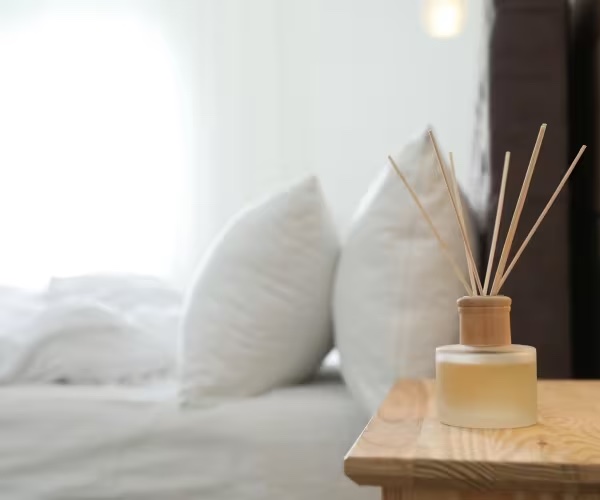Exposure to scents during sleep boosts memory

Dreamstime
By Lynn Allison From Newsmax
A new study found that older adults who were exposed to specific scents as they slept performed better on verbal memory tests. They also experienced improved function in the brain pathway that supports memory formation. The study, published in Frontiers in Neuroscience, noted that cognitive loss in older adults is a growing issue in our society and one that needs to be addressed ─ and using pleasing aromas while sleeping could be an inexpensive, simple, and effective home treatment.
For the study, researchers analyzed data on 43 men and women ages 60 to 85, dividing them into two groups, and assessing neuropsychological function and MRI scans before the start of the study and then after six months.
People in the olfactory enriched group were exposed to seven different smells from essential oils placed in a diffuser each week, one scent per night, for a two-hour period. The control group had the same experience with no odor in their diffusers. At the end of the six-month period, the researchers noted an incredible 226% improvement in cognitive function and memory in the enriched group compared to the control study subjects.
According to USA Today, a number of neurological diseases, including Alzheimer’s, Parkinson’s, schizophrenia, and depression, are preceded by a loss of smell. It has also been established that damage to the sense of smell through aging, exposure to toxins, smoking, head injury, menopause, or a chronically stuffy nose, can lead to memory loss.
“As you age, your memory walks hand in hand with your ability to smell things,” said Michael Leon, a professor of neurobiology and behavior at the University of California, Irvine, who led the research. “We think that pretty much everybody in our modern, affluent world is odor deprived. The loss of stimulation may make their brain vulnerable to a wide variety of problems.”
The explanation for the improvement may be as simple as geography. The smell system in the brain is only one or two connections away from brain areas involved in cognition and emotion, whereas the eyes and ears are much further from those areas.
Smell is the only sense that has a “direct superhighway into the memory centers of the brain,” says Leon. “And consequently, has a far greater impact on memory than those other senses.” Another recent study that looked at older adults with dementia found that exposing them to 40 different odors twice a day let to a significant boost in memory, says USA Today.
“No drug has come close to the improvements they’ve seen,” said Leon, who was not involved in that study. “It’s never too late.”
The scents used were pleasant, says Leon, and included rose, orange, eucalyptus, lemon, peppermint, rosemary, and lavender. The type of odor didn’t seem to matter in cognitive improvement. Although it didn’t work to combine odors, he said, adding that the scents did not disrupt sleep, the way a touch, bright light or loud sound might.
Leon and his colleagues have started a company called Memory Air that will start selling devices later this year that can diffuse up to 40 different scents twice a night with the push of a button. The researcher says that the final price has not been determined but added “we will be aiming for an affordable consumer product.”
He suggested that older adults begin using olfactory stimulation along with getting hearing aids, improving their eyesight with cataract surgery, eating well, and exercising, as part of a successful aging regimen. Any type of diffuser, or even a spice cabinet, will work if you remember to sniff the scents religiously twice daily.
© 2023 NewsmaxHealth. All rights reserved.
For more on this story go to: NEWSMAX





